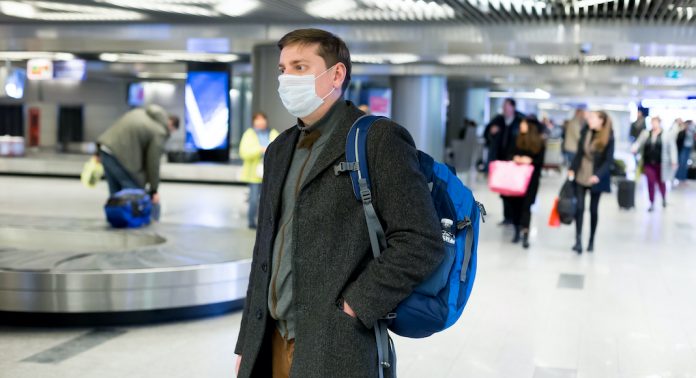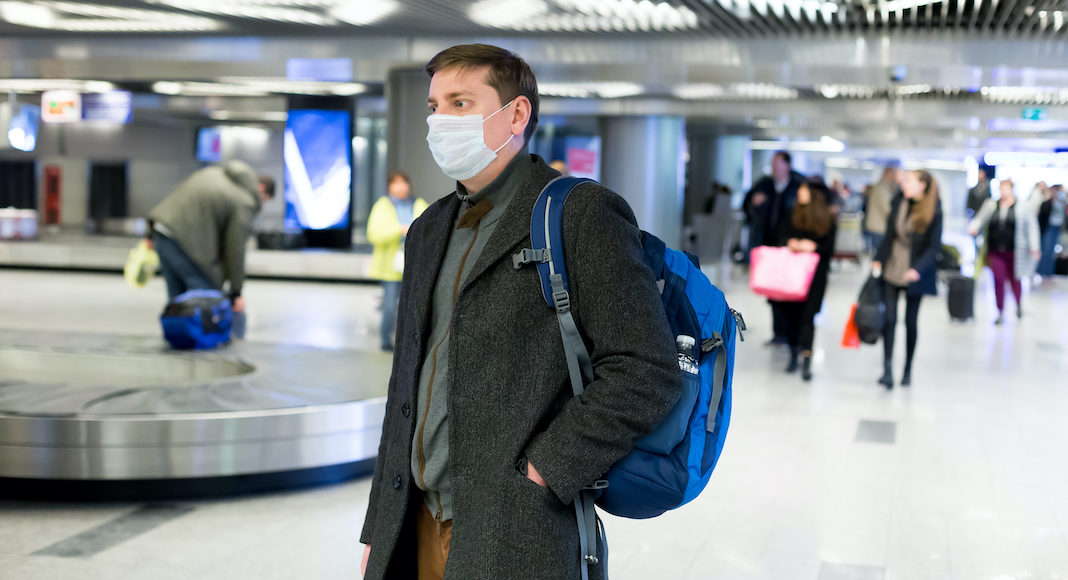
All Societe Generale employees in the United States received the news by email on Wednesday. The Chicago office was completely closed on March 4 for a “complete cleaning ”. The news obviously worried the employees. “It was just a precautionary measure ”, says corporate communications director James Galvin. “The employees worked remotely Wednesday to allow a cleaning of their office. They resumed their normal work this Thursday ”. He adds that "There is no indication that a Chicago employee has been exposed to or contracted the COVID-19 virus."
Faced with the development of the virus in the United States, which has already killed 11 people and infected more than 130 people across 13 states, several other French groups have taken drastic measures concerning the safety of their employees.
At Axa IM in Greenwich, Connecticut, employees received a detailed press release on March 3 stating that "All business travel is prohibited except Paris-London". Personal travel is also “Not recommended in areas where the virus is active ”. The company adds that “If you (the employees) decide to travel to these regions, a period of homework will be compulsory upon your return”. On the side of BNP Paribas, a framework indicates that“There are currently travel restrictions but no total ban”. However, he adds that "All company events have been canceled or postponed".
In Saint-Gobain, headquartered in Malvern, Pennsylvania, communications director Dina Silver Pokedoff announces "The creation of a special committee to follow the situation day by day and even hour by hour". "This team follows the recommendations of health organizations such as the Centers for Disease Control (CDC) and the World Health Organization (WHO) and implements them within the company." For the moment, Dina Silver Pokedoff clarified that “Meetings should as far as possible be held by video conference”, and "the company has put in place protocols for those returning from sensitive areas to ensure that they follow appropriate prevention measures and instructions before returning to work. "
The French luxury and beauty industries are also affected. If the Chanel show took place on March 3 in Paris during Fashion Week, the company had prohibited its employees based in the United States from traveling for the event. At headquarters in New York, an employee who wishes to remain anonymous explains “Expect an official company press release with more information”. He adds that “Most of the employees' trips have been canceled or postponed”. The Louis Vuitton brand, which also presented its fall collection on March 3 in Paris, had also prohibited American employees from going there.
The pharmaceutical company Sanofi is obviously on the front lines in the fight against the pandemic. His research and development boss, John Shiver, was among the pharmaceutical industry officials received by Donald Trump at the White House on Monday. She is working on a vaccine (which she hopes to be able to test in a year to 18 months). But Sanofi, whose American headquarters are in New Jersey, is also a major employer in the United States (15,000 people). The company has also decided to impose precautions. “Travel to China, South Korea, Iran and seven regions of Italy is prohibited (with exceptions, such as the return of expatriates to their homes), and employees returning from these countries and regions must remain in quarantine and work from home for 14 days ”, says a spokesperson for the company. Outside these countries, events with more than 50 people are possible if they do not require international travel and are deemed essential by local management.
What does American law say? As the law firm Sheppard Mullin explains in a blog article, "Employers can ask their employees which countries they have recently traveled to and whether they have been exposed to the COVID-19 virus." They can also ask their employees if they have had "close contact with others who have traveled to countries at risk and / or have been exposed to the virus in other ways. Theemployers can also ask their employees to perform medical tests if this is justified by the nature of the job in question ”. The law finally indicates that "If an employer concludes that an employee may pose a threat to the health of other employees, he may request that the employee remain at home during the COVID-19 incubation period, which is 14 days."
The spread of the coronavirus in the United States even affects French cinema. In New York, the Rendez-Vous with French Cinema festival is to celebrate its 25th anniversary this year, but UniFrance announced on March 4 the cancellation of all international trips by French actors and directors, who were to present their films and speak to the public. Among them: Juliette Binoche, Claude Lelouche or Cédric Klapisch… The festival is however maintained and the films will be broadcast as planned between 5 and 12 March.
Article written by Maxime Aubin, with Emmanuel Saint-Martin and Manon Seguin.








